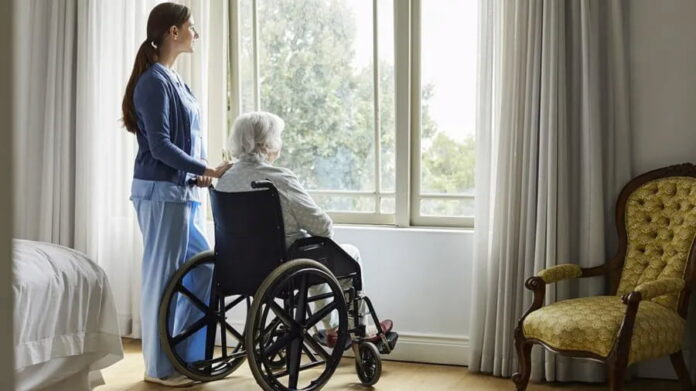As the elderly population grows, the need for senior care services is increasing. Numerous families face the challenge of determining the ideal caring approach for their aged relatives. In-home care for seniors is becoming a sought-after alternative. This thorough guide delves into the various benefits of in-home care, illustrating its appeal to both seniors and their families.
Maintaining Independence and Comfort
One of the main perks of in-home care for seniors is promoting their comfort and independence. Elderly individuals often value the familiarity and coziness of their own homes, where they have established a sense of safety while forming memories. In-home care enables seniors to stay within this known environment, amidst their belongings and treasured recollections. Such continuity can immensely improve their emotional health and overall life quality.
Tailored Care
In-home care presents a degree of customization that may be difficult to attain in institutionalized environments. Caregivers have the ability to craft their services according to each senior’s particular needs and preferences. Whether it involves help with routine tasks, medication administration, or specialized treatment for conditions like Alzheimer’s or Parkinson’s, in-home care providers can modify their plans as needed. This customization ensures that seniors acquire the precise support level they necessitate.
Increased Safety
Safety is a top priority for seniors, particularly those with mobility or health challenges. In-home care tackles these concerns by making requisite alterations to ensure a secure and comfortable home setting. Caregivers can prevent accidents, offer aid with mobility, and be vigilant for potential dangers. This preventative stance on safety lessens fall and injury risks, bringing reassurance to both seniors and their families.
Emotional Health Support
Aging can bring about emotional difficulties as elderly individuals may encounter feelings of solitude, despair, or worry. In-home caregivers provide not only physical help but also companionship and emotional encouragement. Consistent communication with a caregiver can counteract isolation and grant seniors a sense of belonging and worth. This emotional health is a vital component of overall well-being and happiness.
Familial Involvement
In-home care fosters family participation in the caregiving process. Relatives can partake in care-related decisions, visit their loved ones more regularly, and stay actively invested in their welfare. This degree of involvement can solidify family connections and mitigate the stress commonly linked to caregiving. It enables family members to supply emotional support while the professional caregiver manages the physical aspects of care.
Affordable Alternative
In-home care offers a more economical alternative to traditional institution-based settings, allowing families to tailor their spending to only the needed services. This becomes particularly advantageous when juxtaposed with the considerable expenses of nursing homes and assisted living facilities. A pivotal aspect of the value of in-home care is the introduction of the Consumer Directed Personal Assistance Program (CDPAP). This program allows individuals significant autonomy in managing their care by enabling them to select their caregivers, including family members. CDPAP home care personalizes the experience and facilitates a cost-effective approach by leveraging existing family resources for care. This innovative approach underscores the potential of in-home care to provide a cost-efficient, high-quality alternative to traditional care environments, offering financial and emotional benefits to participants and their families.
Continuity of Care
In institutional settings, seniors may interact with different caregivers on different shifts, leading to a lack of continuity in their care. In-home care provides consistent and familiar caregivers who develop a deep understanding of the senior’s needs, preferences, and routines. This continuity of care contributes to better overall health outcomes and a more positive caregiving experience for seniors.
Faster Recovery
For seniors recovering from surgeries or illnesses, in-home care can facilitate a faster and smoother recovery process. Being in a familiar and comfortable environment can boost the healing process. Additionally, caregivers can provide specialized care, medication management, and rehabilitation exercises, all of which are essential for a quick recovery.
In-home care for seniors offers a multitude of benefits that contribute to a higher quality of life, increased safety, and emotional well-being. This approach to senior care allows aging individuals to maintain their independence, receive personalized care, and enjoy the comfort of their own homes.
Moreover, in-home care can be a cost-effective solution when compared to institutional care options. It promotes family involvement and provides continuity of care, ensuring that seniors receive consistent support from familiar caregivers. For seniors and their families, in-home care is a valuable and compassionate choice that enhances the aging experience while maintaining dignity and autonomy.
Read Also
- Why comprehensive health insurance with maternity is beneficial in the UAEWelcoming a child is a significant milestone in any family’s journey. As exciting as this chapter is, it also brings with it a fair share of responsibilities—especially when it comes to planning for healthcare costs. Health insurance is now mandatory in the UAE, but as with any type of insurance, the smallest requirement might not… Read more: Why comprehensive health insurance with maternity is beneficial in the UAE
- Modern Approaches to Adolescent Mental Health Treatment for Lasting RecoveryWith increasing numbers of teens experiencing emotional and behavioral health concerns, adolescent mental health treatment has become more essential than ever. Conditions such as anxiety, depression, trauma and mood instability are on the rise, and effective support must evolve with these growing needs. Today’s treatment models blend evidence-based therapy with flexible access and holistic care, giving… Read more: Modern Approaches to Adolescent Mental Health Treatment for Lasting Recovery
- How to Find a 5-Star Dentist Near YouChoosing a dentist is more than just finding someone who can clean your teeth. It’s about selecting a trusted partner in your long-term oral health. A 5-star dentist not only provides excellent clinical care but also delivers a positive patient experience, from the moment you walk in until the moment you leave. Whether you’re new… Read more: How to Find a 5-Star Dentist Near You
- Your Easy-Peasy Guide to Brewing Amazing MatchaHey there! So, you’ve heard all the buzz about matcha – that vibrant green powder that’s not just pretty but packed with good stuff? It can seem a little fancy and intimidating at first, but trust me, making a delicious cup at home is simpler than you think. Forget complicated ceremonies for now; let’s just… Read more: Your Easy-Peasy Guide to Brewing Amazing Matcha
- Embracing Holistic Wellness: Insights from a Lansing, MI Health CenterReframing Health: Moving Beyond Symptom Management Treating only symptoms often offers quick relief, yet long-term results stay out of reach. When care zeroes in on isolated complaints, the bigger picture, such as stress, behavior, or lifestyle, often gets missed. Research shows that whole-person care, which looks at physical, emotional, and environmental factors, yields better outcomes… Read more: Embracing Holistic Wellness: Insights from a Lansing, MI Health Center






